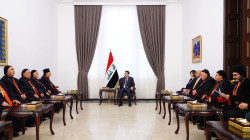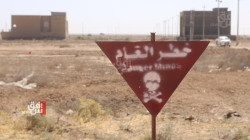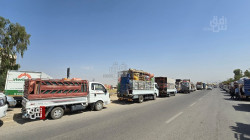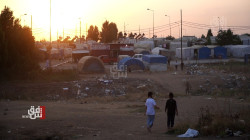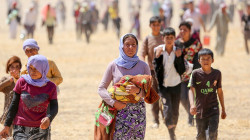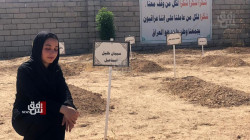As the ninth anniversary approaches.. will Sinjar’s nightmare come to an end ?
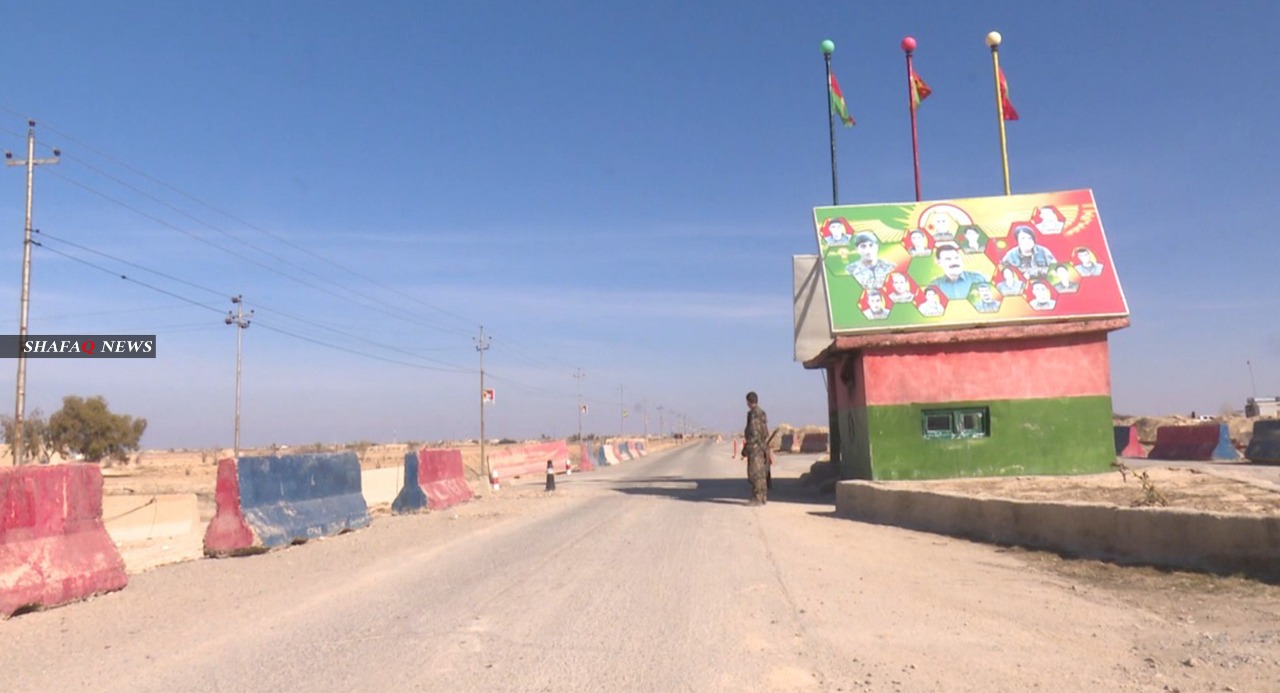
Shafaq News / Nearly a decade has transpired since the liberation of Sinjar district in western Nineveh from the clutches of ISIS; however, the plight of its inhabitants continues unabated, with over 300,000 residents still languishing in displacement camps.
In 2014, Sinjar, a predominantly Yazidi-inhabited region, bore the brunt of a brutal ISIS assault, witnessing atrocities ranging from killings and looting to the abduction of numerous girls and women who are still sought after by their loved ones.
According to the United Nations, more than 70% of the Yazidi population remains displaced due to the city's persistent instability in terms of security, political uncertainties, and delayed rehabilitation efforts.
The aftermath of the ISIS occupation left an indelible mark on Sinjar's landscape, with 80% of its infrastructure and 70% of civilian houses in ruins. The International Organization for Migration reveals that over 2,700 individuals are still unaccounted for, including those who fell into the clutches of ISIS.
Despite the city's liberation in 2017, the predicament of the Internally Displaced People (IDP) has become ensnared in a web of local and regional conflicts.
"The situation in Sinjar is nothing short of tragic," laments Yazidi MP Mahma Khalil, "as approximately 300,000 IDPs from the district continue to reside in camps, even after the passage of nine years since August 3rd."
Khalil further asserts that "a staggering 85% of Sinjar lies in ruins," compounded by the presence of non-Iraqi factions, the dearth of essential services and reconstruction, the absence of law and peaceful coexistence, and the exclusion of Sinjar's displaced population from receiving the one-and-a-half-million-dinar grant.
He emphasizes that the Iraqi government is fully aware of these obstacles, yet lacks a genuine vision for facilitating the return of Sinjar's residents, a fact that he deems regrettable, particularly as no government official has ventured to the district to witness firsthand the ongoing struggles.
Acknowledging the existence of both external and internal factors, along with the government's perceived weakness and lack of earnestness, in contributing to Sinjar's tragic plight, Khalil's sentiments are shared by political expert Saad al-Wazzan. Al-Wazzan concurs with Khalil regarding the existence of regional and local tensions within Sinjar, notably involving the Kurdistan Workers' Party (PKK), which draws intermittent attacks from Turkey, causing security apprehensions for various nations.
Al-Wazzan further discloses that some members of the PKK are officially registered with the Popular Mobilization Forces' 80th Brigade, a situation that engenders tension between the Iraqi government and international entities.
Turkey, accusing the PKK of employing Iraqi territory as a launchpad for armed offensives on Turkish soil, intermittently targets PKK and Sinjar Resistance Units (YBS) bases within the Sinjar district.
The internal discord, according to the political analyst, stems from the conflicts between regional and federal governments, leading to security, economic, and social tensions that adversely impact the provision of citizen services and overall security. Presently, neither government possesses the authority or resolve to confront these challenges, resulting in a momentary reluctance to address them.
According to civil activist Jamal Dakhil, in addition to security problems, Sinjar faces social challenges as civil society organizations work to create a safer and more stable environment. In April of last year, tension escalated in Sinjar following a protest by hundreds of Yazidis, accompanied by an attack on a mosque in the city, protesting the return of displaced Arab families "accused of collaborating with ISIS" during its occupation of the district.
"Achieving stability in Sinjar requires close cooperation between the local community and the official authorities to combat security threats and enforce the law," Dakhil told Shafaq News Agency. "To work on resolving current problems, it is also critical to improve understanding and dialogue among all stakeholders, especially regional and federal administrations."
For her part, an activist from Sinjar, who preferred anonymity, pointed out that "the security conflicts in Sinjar have harmed the district’s economy, resulting in the loss of significant projects that international and local organizations intended to establish." She added to Shafaq News Agency, "These conflicts are one of the main reasons preventing the return of the displaced."
In the latest statistics on the return of the displaced, Minister of Migration and Displacement, Ivan Fa’iq Jabro, announced on July 7th, that 189 Yazidi IDPs have returned from displacement camps in Duhok Governorate to their original areas of residence in Sinjar district.
There are around 300,000 Yazidis in IDP camps, most of them in the Kurdistan Region, while only over 20,000 families have returned to Sinjar, the majority of whom belong to this religious minority after its liberation from ISIS.
Officials in the Kurdistan Regional Government (KRG) blame the international community and the Iraqi government for the prolonged presence of Yazidis in IDP camps as a result of its inability to implement the Sinjar Agreement.
It is noteworthy that on October 9, 2020, Baghdad and Erbil reached an agreement to normalize the situation in Sinjar, which mandated joint governance of the area in terms of administration, security, and services. However, due to political reasons, the agreement has not yet been completely implemented, according to officials in the Kurdistan Region.
In an exclusive interview with Shafaq News Agency, US Ambassador to Baghdad Alina Romanowski stated that Washington supports "the full implementation of the Sinjar Agreement, where the US contributes with financial support to achieve stability in Sinjar and enable the voluntary return of the displaced to their original areas."
This assistance includes housing renovation, water and road infrastructure development, school and hospital equipping, and funding to assist local entrepreneurs in rebuilding their businesses, as well as empowering communities with resources to support returnees and help them sustain themselves and their families."
Despite her remark that the US will continue to support the Sinjar Agreement's implementation, Ambassador Romanowski emphasized that "the Iraqi government plays a crucial role in achieving the desired outcomes of the agreement."
She stated that both the federal government and the KRG can help facilitate the return of IDPs by appointing a district administrator for Sinjar and deploying a security force of 2500 Sinjar residents. Furthermore, eliminating the presence of militias in Sinjar is critical since "the existence of such groups hinders the required stability for the return of IDP."
Romanowski considered it a priority for both Baghdad and Erbil to include Yazidi communities in this process, as Yazidis make up the majority of Sinjar's population and the largest group in Iraq's humanitarian camps.
Furthermore, on May 18, the Special Representative of the Secretary-General for Iraq, Jeanine Hennis-Plasschaert, updated the UN Security Council, indicating that no progress had been made in implementing the Erbil-Baghdad agreement on Sinjar. She encouraged the agreement to be carried out as soon as possible.
In the same month, the Iraqi President conveyed a reassuring message to the IDPs, highlighting the significant improvements and positive developments in Iraq's current situation. This optimistic outlook is expected to play a crucial role in resolving the Sinjar IDP crisis.
Furthermore, earlier this year, the German Parliament (Bundestag) officially recognized the atrocities committed by ISIS against the Yazidis in Iraq in 2014 as genocide. In response to this recognition, the Bundestag recommended a range of support measures for the Yazidi community.
As per the data provided by the Federal Office for Migration and Refugees (BAMF), the global Yazidi population is estimated to exceed one million individuals, with more than 200,000 of them residing in Germany. Remarkably, Germany hosts the largest Yazidi community outside of Iraq, constituting at least 20% of the worldwide population.
